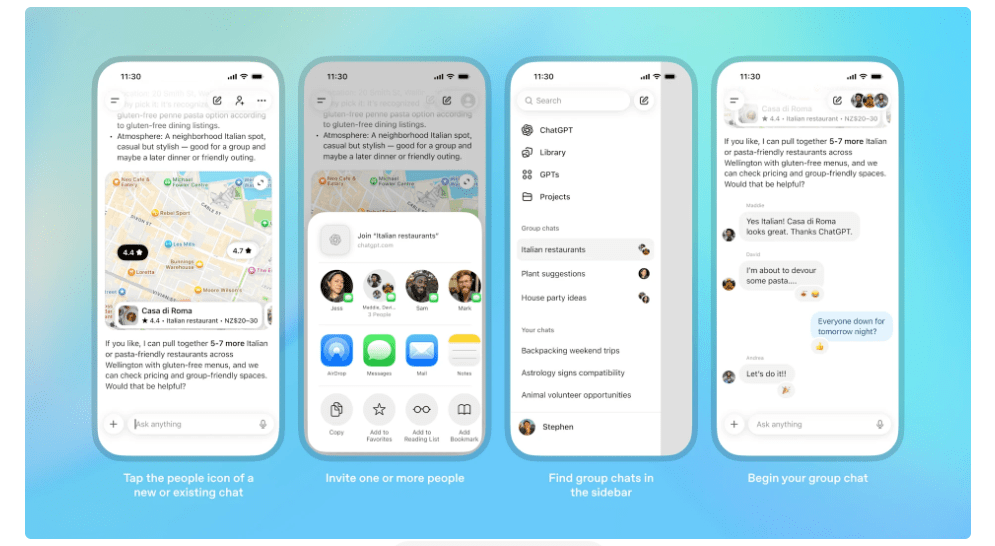AI / Tech
ChatGPT launches pilot group chats across Japan, New Zealand, South Korea, and Taiwan

OpenAI on Thursday introduced a group chat feature for ChatGPT. The feature, currently being tested in select regions including Japan, New Zealand, South Korea, and Taiwan, lets users collaborate directly within the app.
The group chat is available to Free, Plus, and Team users on both mobile and web platforms. OpenAI says the pilot is designed to explore how people use group conversations in ChatGPT.
The announcement comes after earlier reports that OpenAI had been testing a direct-message-style tool.
The ChatGPT maker describes this pilot as just a “small first step” toward creating a more “shared experience” in the app. Early users will be invited to provide feedback, which the company says will help shape how the feature eventually expands to more regions and offerings.
According to OpenAI, private chats and personal ChatGPT memory stay completely private. Group chats are invitation-only, and members can leave at any time. Most participants can remove others, though the group’s creator can only leave voluntarily. For users under 18, content is filtered, with extra safeguards and parental controls in place.
Starting a group chat is easy. Just tap the people icon and add participants, either directly or by sharing a link. Groups can include 1 to 20 people. If you add someone to an existing chat, a new group is created, leaving the original conversation unchanged. Each group has a short profile, and all chats are organized in a labeled sidebar for easy access.
Group chats work just like regular ChatGPT conversations but with multiple people joining in. GPT‑5.1 Auto handles responses and comes loaded with features such as search, image generation, file uploads, and dictation. In group chats, ChatGPT’s usage limits — which restrict how many AI responses users can receive per hour — only count when ChatGPT responds. Messages between human participants don’t count toward these limits.
Techcrunch event
San Francisco
|
October 13-15, 2026
ChatGPT has learned new social skills for group chats, knowing when to jump in and when to stay quiet. You can tag “ChatGPT” to get it to respond. It can also react with emojis and use profile photos to create personalized images for the conversation.
The group chat feature represents the latest step in OpenAI’s gradual transformation from a simple AI assistant into something resembling a social platform. In late September, the company launched Sora 2, a standalone social media app with a TikTok-style feed for sharing AI-generated videos, complete with algorithmic recommendations based on user activity and location, parental controls, and direct messaging capabilities.
